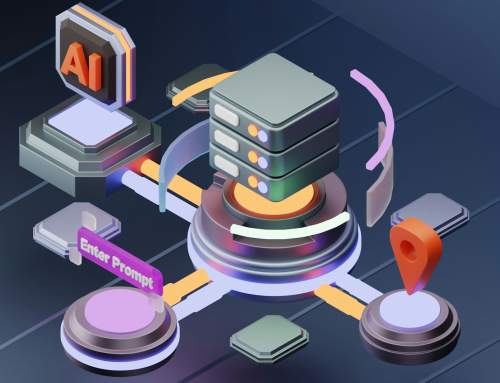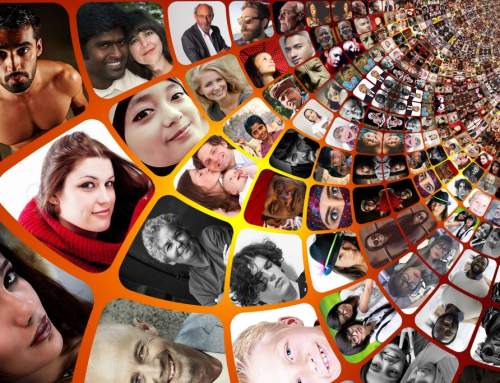Are you grieving for your career? You can grieve for your career when you’ve lost a job you love or even if you’ve never found work that brings you purpose and connection. It’s actually important to grieve when you transition through various stages in your career – it helps you understand more about yourself, and deal with the feelings of loss. But what if you get stuck in a rut, attached to the memory of a job you loved? How do you move on? This article helps you understand why you grieve for your career, how to accept set-backs, build resilience and move on.
More than just a job
According to an American study by Gallup, 55 percent of American workers and 70 percent of university graduates get their identity from their job. Anecdotally (based on my experience as a career coach) my guess is the same statistics apply in Australia.
When we meet new people, one of the first questions we are asked is ‘What do you do for a living?’ Our job defines us when we say “I’m a carpenter”, “I’m a doctor” or “I’m a banker”. People we meet make assumptions about our character based on our occupation. So, it’s little wonder we tie up our self-identity with our job.
Many working Australians spend more weekday time with their colleagues than their family. And for people who live alone, the workplace can be a vital source of social support. Plus going to work gives us a sense of purpose and ritual – we get up, get dressed and go into work. It defines what we do with our day.
So, given our human need to connect, find purpose and fit-in socially, it’s hardly surprising we attach our identity to our work. But what happens when you lose a job (and the work community) you love? How do you talk about yourself and your life when you’re not working, especially not by choice?
Losing the career you love
Leaving your career may be a choice or it may be foisted upon you due to circumstances beyond your control such as:
• Forced redundancy
• Ill health
• Caring for a family member
• Parental leave
• Retirement
Transitioning into your new life and identity can be more difficult, especially if your identity and social networks are tied to your work. It can be even harder if you’re a perfectionist because you don’t expect or accept the inevitable failures we all experience in life, or view failure as a learning experience. It can also be more difficult if you are used to exerting a high level of control. I remember how out of control I felt when I first became a parent and my day orbited around the needs of my baby daughter. It was a huge shift from working with adults 40 hours a week and worrying about my own daily needs!
The loss of your career can trigger feelings akin to grief. Talking about grief in the context of a career doesn’t trivialise the feelings you have when a family member or friend dies. Obviously, the death of a loved one is more greave. But, it’s important to acknowledge and process the feelings of grief when you lose a job, your self-identity and disconnect from the work community where you belong.
Grieving for the career you wished you had
If you’ve found purpose and connection with a community at work, consider yourself fortunate. Some people search for but never find a job they love. This can be due to circumstances, such as being responsible for caring for others or simply because they’ve made the wrong choices. For some, grief for a missed career is triggered by a major life milestone, like turning 40. At the mid-point of your working life, you can have a dawning realization you’ve traded time for money but that’s it. Your job doesn’t give you purpose, connection or anything other than money. Worse, you can feel trapped to the point where you expect to spend the rest of your life working through the motions.
Pushing down feelings of grief and pretending they don’t exist will just leave you stuck in the cycle of grief. It’s important to work through each stage, so you can accept your present circumstances and most importantly, move on.
The 5 stages of grief
The Five Stages of Grief, first identified by Elisabeth Kübler-Ross in her 1969 book On Death and Dying, are:
1. Denial & isolation
2. Anger
3. Bargaining & guilt
4. Depression
5. Acceptance
The five stages of grief don’t always occur sequentially and people can experience one or more stages at the same time.
Denial and isolation
Losing your job suddenly, such as being made redundant, can catapult you into a state of denial where you feel isolated. But denial and feelings of isolation can be triggered more subtle changes at work like:
• Someone who you have a close relationship with leaving
• Being taken off a project you feel passionate about
• Being treated poorly at work by a colleague, such as workplace bullying
Denial is your brain’s way of protecting you from the shock of what has happened. This is okay in the short-term because it can soften the blow but you can’t move forward in a mind-state of denial. Talk to people who you trust to help you process and gain perspective on the sudden event. This is where connecting with a career coach is helpful. As well-meaning as friends and family are, their natural instinct is to protect your feelings. A career coach will be sensitive to your feelings but will also give you practical strategies to get your working life back on track.
Anger
Anger kicks in when you make sense of the injustice that’s happened at work. It can be a useful feeling if it motivates you to take action, like applying for a new job or signing up to a course. However, you need to be mindful of your angry feelings and process them in a considered way. By acknowledging that you’re feeling angry, you’re less likely to vent that anger inappropriately, like shouting at your family or posting rude comments about your boss on social media. Remember, your angry feelings will pass and you don’t want to damage your professional reputation by acting out in a way you’ll regret later. It’s also a good idea to sort through angry feelings before you attend job interviews, in case you say the wrong thing or give off angry vibes.
Bargaining
What are you prepared to trade-off to get your next job? Money? Time with your family? Happiness? When you’re in a state of grief, you are vulnerable to making poor decisions because you fear you won’t get another job. Bargaining isn’t a good idea because you think can trade off happiness for advancement in your next role but chances are, you’ll repeat past mistakes and end up in the same situation. It’s a good idea to speak with a career coach before you negotiate your next role. Use them as a sounding board to decide what role job you want and what employment conditions you’re happy to accept.
Depression
When you’re depressed, it can be very difficult to budge from your fixed mindset to re-frame your thinking. You’re more prone to thinking catastrophically like “I’ll never find another job” or “I’m stuck in a job I hate for the rest of my life” instead acknowledging you will find another job, but it will take your time and effort.
There’s a difference between feeling sad and feeling depressed. Depression is when you can see no light at the end of the tunnel whereas sadness feels like the lights have dimmed. All of us experience sadness and disappointment – it’s part of rhythm of life – and if you can’t see a way forward seek professional help from a psychologist who can help you with your thoughts and behaviours.
Acceptance
When you acknowledge and understand your current situation, you allow yourself to move forward because you’re not anchored in the cycle of grief. This doesn’t mean you have to accept a poor deal just to find your next job. In fact, if you do that, your choices will catapult you back into the same cycle. Acceptance allows you to stop staring in the rear-view mirror thinking “what-if”, acknowledge what has happened, learn from the experience then cast your eyes forward, to the next stage of your career. But it’s confronting! You have to be willing to let go of the emotional baggage that you’ve been clinging to. It’s easier to stay angry and blame your old boss/job/colleagues than it is to look in the mirror and say “if it is to be, it’s up to me”. There are lots of support to help you gain acceptance: family and friends, former colleagues. But again, it’s nice the family and friends offer you emotional support but often you need practical help to get your career back on track. A career coach will help you identify your strengths and passions and well has career fundamentals, like updating your resume and practicing interview skills. At the end of the day, it’s your life, your career and your choice, so make the most of it.
Life is a short ride, often with a few bumps along the way. You need resilience to get through the journey! I doubt you’ll draw your final breath thinking “I’m glad I never moved on from grieving about my career. I’m glad I stayed angry/depressed/guilty” or any of the other emotions associated with grief. If you’re stuck grieving for your career, then it’s time to get help. Let’s talk about your strengths and passions and how to rediscover work that gives you purpose and connection.
Alternatively, I offer a fantastic range of online career learning tools via my website for self-guided learning including:
- LinkedIn Makeover
- Master Your Interview Skills
- Networking Online & In-Person
- Your Dynamic CV
- Let’s Get Back to Work
Further reading:
• Why you should take time to mourn during career transitions







